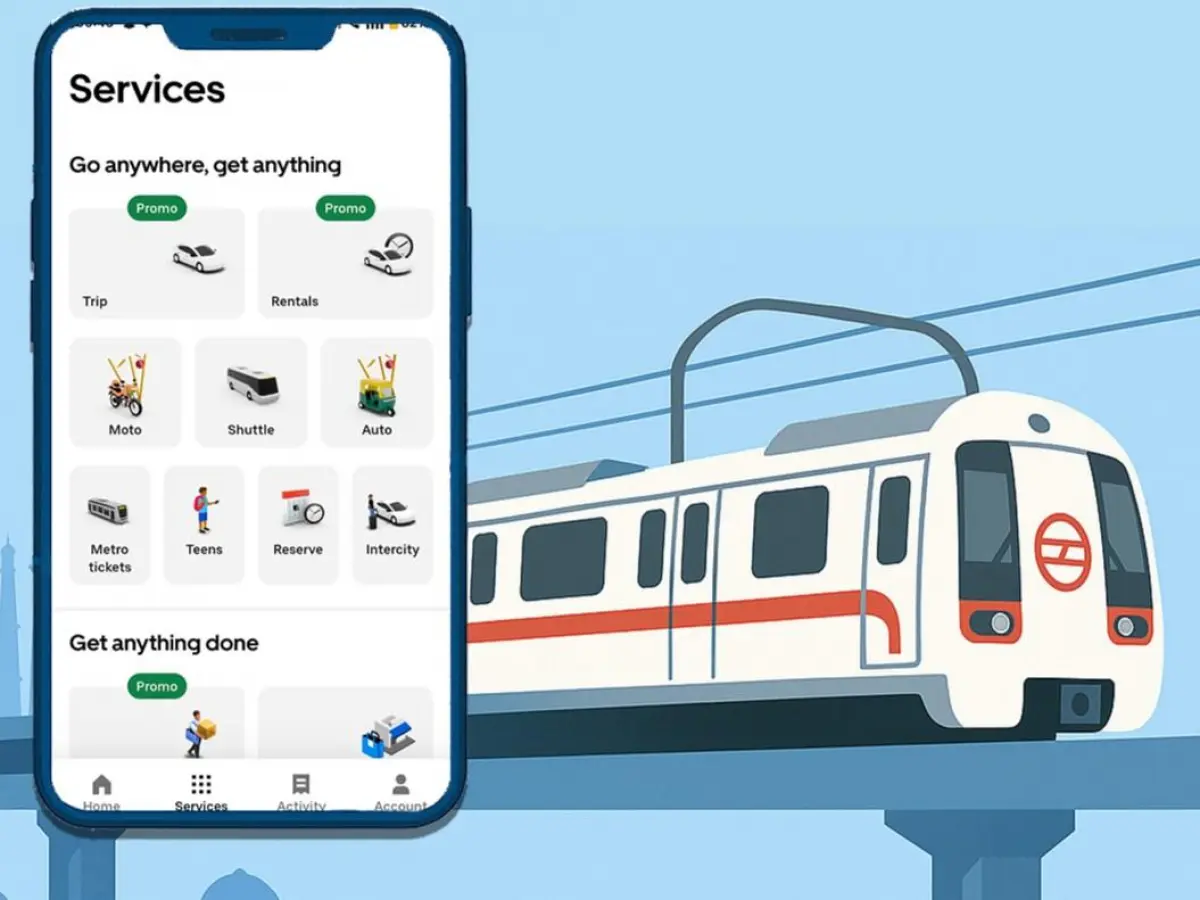Rapido is launching a unified ticket solution for Delhi Metro users, integrating bike-taxi rides and metro fares into a single seamless journey. Commuters will soon be able to plan and pay for their entire trip—from home through the metro—with one ticket via the Rapido app, leveraging its partnership with the government-backed ONDC platform .
Presently, Delhi Metro tickets can already be purchased through the Rapido app, and selected stations feature designated pick-up and drop-off zones, easing commuter access . First- and last-mile bike-taxi rides of up to three kilometres are available at a fixed ₹25 fare, with the first kilometre offered free when booking a metro ticket . An official stated that Rapido’s long-term objective is to offer an end-to-end ticket covering both the bike ride and metro travel once the current metro ticketing model achieves sufficient traction .
This move supports sustainable, gender-neutral urban mobility by reducing modal friction, cutting carbon emissions, and broadening public transport access. A transport expert noted that the integration of bike taxis and metro travel could significantly increase public transport adoption by improving convenience and environmental outcomes . The inclusion of designated pick-up zones, including female-friendly spaces, aligns with rapider safety and inclusivity goals. With Delhi being Rapido’s largest market—roughly 800,000 rides per day, including around 100,000 for Metro access—this initiative could significantly shift commuter behaviour .
In parallel, Rapido is piloting food delivery services in Bengaluru, seeking to utilise its existing bike-taxi network while allowing riders to earn more. Analysts caution that balancing delivery and ride services will require careful capacity management to avoid delays . Rapido emphasises that food delivery will remain focused on two-wheelers and that rider recruitment will expand based on demand . Urban planners observe that integrated ticketing enhances public transport efficiency, makes dense cities more navigable, and promotes equitable access. One expert commented that removing payment friction encourages greater metro use, which is crucial for reducing Delhi’s high levels of vehicular emissions . However, the initiative’s success will depend on app usability, rider availability, and consistent service quality—even during peak hours.
Rapido plans to activate its unified ticketing feature once user uptake stabilises, while expanding its fixed ₹25 first- and last-mile services across the city. Continued partnership with DMRC and ONDC will be pivotal, as will real-time commuter feedback on ride comfort and app functionality. If implemented successfully, the unified ticket system could scale to other metros such as Bengaluru and Mumbai, offering a template for India’s future mobility model, emphasising interoperability, low-carbon travel, and inclusive design. The move signals a global shift in urban transport integration, reducing private vehicle dependence and empowering commuters with smarter, greener journey options.
Also Read :New Delhi PWD Plans Two Flyovers on Metro Corridors by Year End


